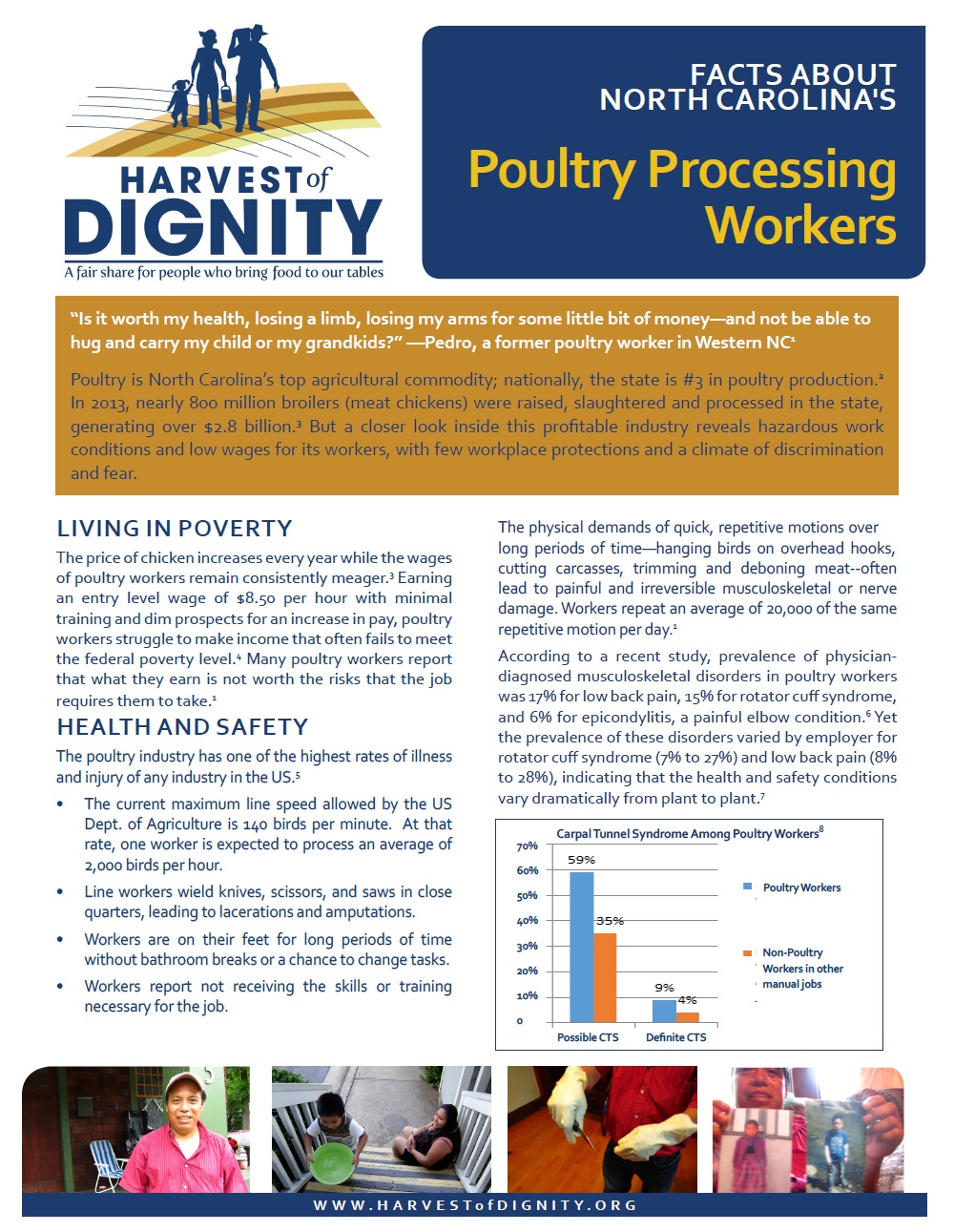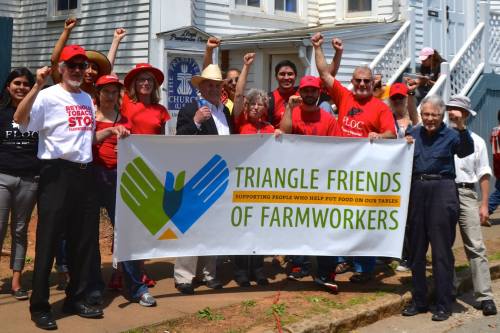The Pay Stub Disclosure Act
 Monday, March 7, 2016 at 2:49PM by
Monday, March 7, 2016 at 2:49PM by  Jennie Belle
Jennie Belle As many as 20 million U.S. working men and women, including farmworker and poultry workers, do not receive pay stubs outlining how their pay is calculated or what deductions were taken from their wages. Too often, workers who don't receive pay stubs are victims of wage theft, cheated of the pay they legally earned.
Currently, there is no there is no federal requirement that employers give workers pay stubs. Without a paystub, workers are not only at a disadvantage in determining if they have been paid correctly, but without documentation, they have difficulty proving the violation.
In January, Representative Bobby Scott has introduced a bill, The Pay Stub Disclosure Act (HR 4376), in the US House of Representatives requiring employers to provide workers with information that employers are already required to keep and thereby help deter wage theft.
The Pay Stub Transparency Act would:
- Require a uniform federal pay stub, making it easier for multi-state employers who currently face a patchwork of varying state laws.
- Require employers to provide information to employees covered by the Fair Labor Standards Act’s minimum wage and overtime requirements, with a pay stub that explain how their wages are calculated, including whether they were paid overtime.
- Give employees the right to inspect their employers’ pay records.
- Give employees the ability to go to court to seek financial remedy when their rights to a pay stub or records inspection are violated.
- Codify the legal presumption that if an employer fails to keep records of an employee’s pay, the employee’s own credible evidence and testimony about his or her pay is presumed to be true.
The Pay Stub Transparency Act is important because wage theft, which is rampant in throughout the U.S, is especially devastating for workers in low-wage jobs. Too often, workers’ pay is illegally whittled down by undercounting the hours they worked, paying illegal wage rates or taking unauthorized deductions.
Many workers are paid in cash, by check without any explanation or calculation, or with a payroll debit card that either doesn’t have a pay stub feature or that charges workers a fee to see their pay stubs. One recent study of 4,000 low-paid workers found that 57 percent did not get a paystub.
By requiring employers to provide pay stubs, workers will receive more of their legally owed wages and deter wage theft.
First, employers would think twice about underpaying workers their wages if the hours and wage rates had to be reported regularly on a paystub. Studies show that those employers who pay in cash or without proper paystubs are often ones who steal wages from workers.
Second, workers who understand how they are paid (or underpaid) would be better equipped to talk with their employers about discrepancies between their own records and the employers’.
Third, workers who discovered that their employers were cheating and couldn’t resolve the problems directly with their employers would have better information for filing a wage complaint.
The Pay Stub Disclosure Act is a common-sense piece of legislation that will help workers know their rights to be properly paid, will give them the tools to ensure that they are being compensated as they should be, and in if necessary, the proof and documentation they need to help recover stolen wages.
Consider calling your Congressperson to ask that they co-sponsor this common-sense piece of legislation.














